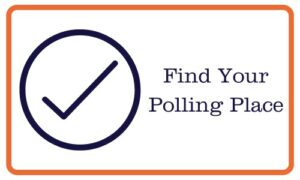Next week Ohio voters head to the polls to decide the state’s future in a special election called for by Ohio’s Republican-dominated legislature. The only issue in the vote on August 8 is Issue 1. Critics allege that Issue 1 was placed in the summer to catch voters off guard and undermine fall’s vote on abortion rights.
 Reproductive and abortion rights are a key priority for much of the Jewish community in Cincinnati, with several community organizations endorsing the proposed abortion rights amendment for Ohio.
Reproductive and abortion rights are a key priority for much of the Jewish community in Cincinnati, with several community organizations endorsing the proposed abortion rights amendment for Ohio.
Since 1912 Ohioians have had the right to place citizen-led amendments to the Ohio Constitution, which could pass with more than 50% of the vote. If Issue 1 passes, it will increase that threshold and make it harder to place, and pass, citizen-led amendments.
What is Issue 1?
Issue 1 would amend the Ohio constitution to:
- Require 60% of voters to pass a constitutional amendment, rather than 50% plus one – a simple majority.
- Require signatures from 5% of voters in all 88 of Ohio’s counties to get a citizen-led amendment on the ballot, rather than the current 44 county requirement.
- Remove the 10-day grace period that allows citizens to replace any signatures deemed unacceptable by the secretary of state.
“Issue 1 is about as cut and dry as it gets,” said U.S. Rep. Greg Landsman. “Democracy has always been 50 percent plus one, not 60 percent. Issue 1 has huge implications for our democracy, and it is undemocratic.”
Issue 1 was placed in a special election in late spring by Republican state leaders, as signature gathering by Ohioans United for Reproductive Rights was picking up momentum. All in all, they gathered over 700,000 signatures, out-pacing the required 414,000, to place abortion rights on the ballot in November.
Critics of the special election see the timing as a thinly veiled attempt to erase reproductive rights. Republican leaders have admitted as much, with Republican Secretary of State Frank LaRose saying, “this is 100% about keeping a radical, pro-abortion amendment out of our constitution.”
“This is a last-ditch effort to stop abortion from becoming a constitutionally protected right in the state when it has its own vote on November 7,” said Rabbi Ari Jun, director of the Jewish Community Relations Council in a statement. “We won’t back down on ensuring women’s rights to bodily autonomy simply because others aren’t playing fair.”
Judaism and abortion
A poll conducted by the Pew research center showed that based on their political leanings, 58 percent of Jews who identified as politically conservative, 85 percent of Jews who identified as politically moderate, and 94 percent of Jews who identified as liberal, all answered that abortion should be legal. Abortion rights are a consensus in the Jewish community.
Issue 1 will not only upend democratic norms changing the requirement for a measure to pass from a simple majority to requiring 60 percent but will also serve to protect Ohio’s extreme abortion ban. The law is so extreme that last year Ohio made national news when a 10-year-old girl who was the victim of rape was denied access to an abortion. The law was temporarily blocked by a Hamilton County judge.
“If Issue 1 were to pass it would undermine our ability to restore, and protect our freedoms,” said Landsman. “Ultimately it is a non-partisan issue, because you have Republicans jumping in with Democrats and independents who want their right to vote on the ballot protected. [If Issue 1 passes] Our ability to compete for talent is going to be diminished, folks are going to want to live and raise a family in fully free states.”
One person one vote is a core principle of our democracy and voting is your right make sure your voice is heard this coming Tuesday. Polls are open August 8 from 6:30 a.m. – 7:30 p.m.












